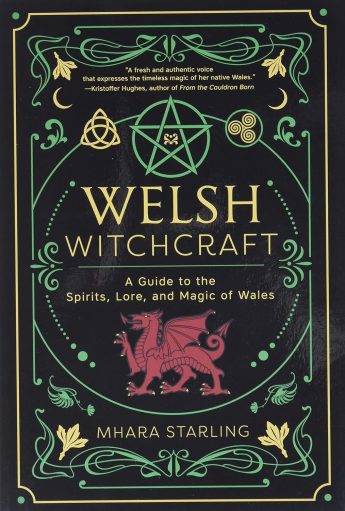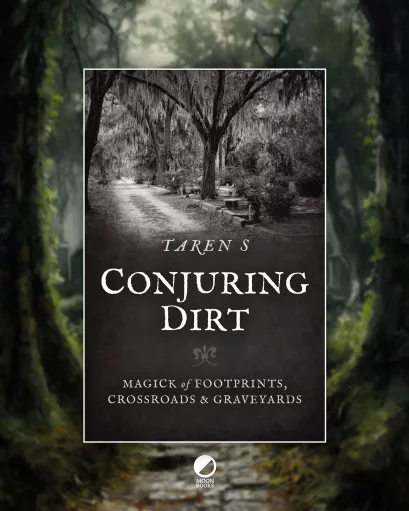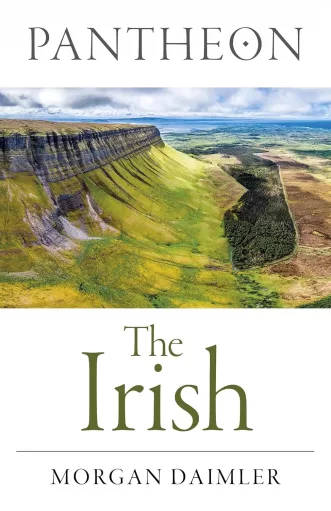Among modern pagans, few mythological figures shine as luminous or as enigmatically as Arianrhod. In this latest book review, Kristoffer Hughes invites the reader to embark on a journey through the shifting sands of mythology and gain the wisdom of a goddess that is often misunderstood, misinterpreted, and appropriated by those who haven’t taken the time to learn her myth.
Kristoffer is an author, television personality, and chief of the Anglesey Druid Order and it is my pleasure to be offering this book review. Hughes blends his vast knowledge and personal anecdotes to create a book that is both profound and scholarly, taking us on an exciting journey through the medieval Mabinogi and ending in modern Wales.
First Impressions: Accessible Scholarship
This book review serves as an introduction to a rich tapestry of lore and interpretation that surrounds Arianrhod.

From the first page “Pagan Portals – Arianrhod: Celtic Goddess of Fate, Fortune and Destiny” promises a short, but in depth, journey for both the neophyte and seasoned practitioner. The Pagans Portals series is known for its short, but interesting, books that give easily digestible dives into pagan topics. This is both their unique selling point and, in my opinion, their biggest weakness.
As someone who writes book reviews often, how can you provide enough information on such complex topics in as little as 80 pages of text? This leads to a number of the Pagan Portals series to be hit and miss in my experience. However, I believe that Kristoffer has managed to squeeze in a substantial amount of information in a way that makes sense and leads you on a journey to discover the goddess at the centre of everything. Kristoffer’s writing style is warm and informative without bombarding the reader with too much jargon or esoterica.
As with all Pagan Portals books, it is modest in length, but never superficial. It oozes with the passion that the author has for both the mythology and culture of Cymru (Wales). The author is dedicated to restoring the nuances that have been lost to centuries of colonialism and the limitations of translating the texts into English. For the Welsh language, Cymraeg, is layered with meanings and subtle hints at further interpretations that don’t translate well into English. This is one of the main focuses in this latest work by Hughes.
Unveiling Arianrhod: Myth and Mystery
I will admit, as someone still finding his way in the vast expanse of Welsh myth and paganism, Arianhrod is still a bit of a mystery to me. Unfortunately, I am not a native speaker of the Welsh language, although I am currently trying to learn. So, like most people, when they want to learn about these mysterious figures, I took to the internet. Often, I would see conflicting information online about her various aspects.
Was she a moon goddess? Was she evil for shunning her children? What does her name truly mean? This book gives clear answers to the above questions, including several that I had not previously considered. Hughes dispels many myths, using the intricacies of the language to extrapolate meaning from both her name and her stories.
What sets this book apart is its unwillingness to settle for the simple or sensational. Kris does not just recount her myths from the Mabinogi and beyond, he interrogates them, diving deep into the symbolic meaning in these texts from both a historical and linguistic point of view. Kris challenges readers to view Arianrhod from outside the constraints of the patriarchal narratives and invites you to reclaim her power as a sovereign, self-determining force that brings balance to the world.
Through thorough and careful analysis of the texts, Kris illuminates the deeper magical and mythological meanings at work. From her divisive motherhood persona, her trials, her association with the stars and the sea, to her pivotal role in the unfolding destiny of those around her. The author is unafraid to question the many traditional interpretations and invites the reader to embrace ambiguity, paradox and personal gnosis in building a relationship with Arianrhod.
Ritual, Reflection and Practice
Another strong point of this book, and the author’s books in general, lies in their practicality. Hughes is not content to leave Arianrhod as a myth on the page, he offers concrete ways to connect with her energies in a practical way.
These exercises are crafted with care to provide an accessible, but useful set of practices. Blending a respect for tradition with the need to recognise that modern pagans live in the 21st century. Importantly, Kris emphasises the importance of safety, consent and respectful engagement with Welsh culture and language. He cautions against appropriation and advocates for appreciation through genuine study and taking part in Welsh culture, a refreshing stance in a genre that is sometimes plagued with exploitative approaches.
Final Thoughts
This book review has been a pleasure to create. Kristopher Hughes’s “Pagan Portals – Arianrhod: Celtic Goddess of Fate, Fortune and Destiny” is a testament to the enduring power of myth, its ability to heal, challenge, and transform. With humility, reverence, and a hint of humour, Kristoffer Hughes guides readers to see Arianrhod in a new light. Not as a remote moon goddess imprisoned by patriarchal judgment, but as a living force of sovereignty, change, and wisdom. As a stabilising force at the centre of the wheel of life.
In a world hungry for authenticity and connection to ancestral tradition, this book is more than a superficial introduction, it is an invitation to listen, reflect, and weave one’s own thread into the ever-turning wheel. For anyone wishing to honour these Welsh mythological figures, while forging a meaningful spiritual path today, “Pagan Portals – Arianrhod: Celtic Goddess of Fate, Fortune and Destiny” offers wisdom, inspiration, and a gentle challenge. Its time to reclaim your magic and spiral around the axle that turns the wheel of life.
Discover more from The Scouse Druid
Subscribe to get the latest posts sent to your email.



